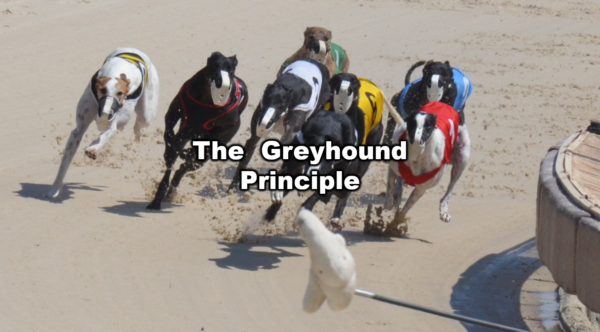Racing dogs are trained to chase a mechanical rabbit that always goes a little faster than the fleetest dog. This causes them to run faster than they otherwise would.
Companies that annually set overly ambitious performance objectives for their employees employ this greyhound principle. To a point, it works. Most people achieve more when expectations are set high.
The strategy turns negative, however, when firms chasing Wall Street’s rabbit continually set “no-excuses” double-digit growth goals without regard to market realities (including multiple competitors driving toward the same goals) or systemic understaffing (part of the “do more with less” philosophy). Consequently, many corporate leaders are caught up in a ceaseless upward spiral of stress.
Yes, the financial rewards for such success are ample, but the driving motivation is usually not greed and certainly not job satisfaction – it’s fear. This can often morph into desperation, a dangerous mindset that can spawn imprudent short-term decisions and outright cheating.
It’s unwise and unethical to ignore the business and moral implications of aggressive growth strategies that put executives under unprecedented, unrelenting, and unreasonable pressure.
On one level, it’s a matter of values. Work-life balance should be more than a rhetorical ideal. A good company cares about its people. The path to career success shouldn’t be littered with the ruins of failed marriages and neglected children.
On another level, it’s long-term self-interest. Without an abundant and replenishing pool of talented and committed leaders, no company will succeed for long. The organizations that will pull away in the next decades are those that can attract and retain the best talent because they’re places where those people want to work – and that will take a lot more than money.
This is Michael Josephson reminding you that character counts.
